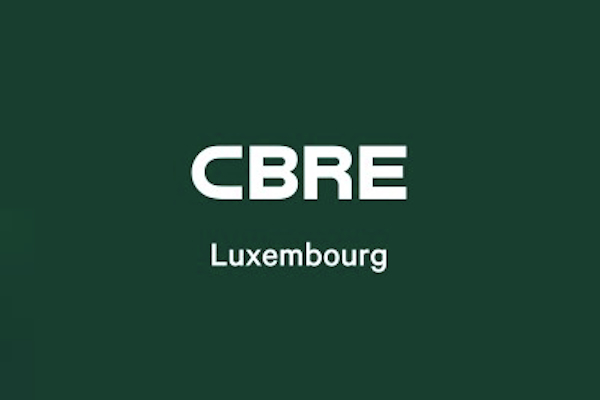
On Tuesday 4 November 2025, commercial real estate services and investment firm CBRE (Luxembourg) hosted the conference “From Risk to Return: Leveraging Sustainability for Real Estate Value Creation”.
The conference was aimed at asset managers, family offices and property owners in general and its purpose was to explore how sustainability can create value in real estate, through a cross-perspective approach involving regulation and featured contributions from Caroline Bocklandt (Elvinger Hoss Prussen), Anthony Auert (Luxinnovation) and Ludovic Chambe (CBRE). The event was moderated by Benoît Cruysmans, Head of the ESG & Sustainability department at CBRE BeLux.
In relation to the context of the conference, Ludovic Chambe said: “The European sustainable real estate market is undergoing major changes, driven by increasing regulatory requirements (Green Claims Directive, EPBD, Omnibus Package). Despite increased complexity, sustainability is becoming a strategic constant. Client priorities are shifting towards decarbonisation, biodiversity and social issues, with strong demand for reliable data to guide decisions. Investors are increasingly aware of the added value of sustainable projects, often going beyond compliance to anticipate market expectations.”
Caroline Bocklandt add: “The regulatory landscape is evolving, notably with the partial rejection of the future Omnibus Package and the transposition of the CSRD in Luxembourg. These reforms aim to simplify obligations, harmonise standards (CSRD, SFDR, Taxonomy, CSDDD) and enhance competitiveness. Voluntary reporting is becoming a strategic tool for companies outside the CSRD scope, enabling them to meet investor demands and improve their sustainability management.”
Anthony Auert remarked: “Digitalisation is becoming essential to meet ESG requirements. Luxembourg has a rich ecosystem, with more than 4,300 companies in the construction sector, supported by institutions such as MeluXina, Terra Matters and the Al Factory. Luxinnovation plays a key role in supporting companies through programs such as Fit 4 Sustainability and Fit 4 Al, facilitating access to financing and innovative partnerships.”
On the subject of challenges within the industry, Caroline Bocklandt highlighted: “Implementing an ESG strategy requires a full company diagnosis, adapted governance (e.g. ESG committee, CSO) and an effective reporting system. Key obstacles include limited time and resources and the complexity of aligning stakeholders around ESG objectives.”
Anthony Auert noted: “Renovating the existing building stock is a major challenge in achieving Luxembourg's climate goals. This involves integrating energy-efficient technologies, healthy materials and a circular approach to the end of life of buildings.
Climate resilience and indoor air quality are becoming priorities, requiring collective mobilisation and public-private cooperation.”
Ludovic Chambe added: “Clients face several data-related challenges: making decisions based on benchmarks, complying with reporting requirements, investing to improve sustainability performance and executing clear action plans. Monitoring progress and aligning with European standards (TOP 15-30%) are also key concerns. Balancing short-term profitability with long-term sustainable returns is a key issue.”
In reference to the opportunities and solutions available, Ludovic Chambe stressed: “Sustainability must be integrated at all levels: home, portfolio, asset. CBRE emphasises value creation, both financial (rents, vacancy rates, attractiveness) and qualitative (comfort, sustainability). Analysing the link between ESG performance and economic performance is essential, with success stories to back it up. Integrating sustainable CAPEX into business plans is becoming a strategic lever. ESG-labelled funds show competitive returns. Turning risk into opportunity is a reality.”
Anthony Auert noted: “Luxembourg offers a comprehensive range of public support measures: subsidies, calls for projects, tax incentives (up to 18% of CAPEX/OPEX), institutional support (Klima Agence, Luxinnovation, etc.). These measures facilitate the energy transition and implementation of sustainable solutions in the real estate sector.”
Caroline Bocklandt added: “Adopting a sustainable approach helps reduce regulatory risks, improve reputation, attract and retain talent and access new markets. Voluntary reporting becomes a strategic tool to meet investor expectations and effectively manage ESG issues. It also supports competitive growth and long-term resilience.”








